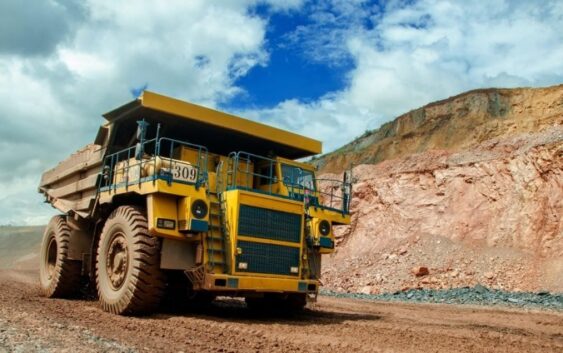- ALGERIA MINISTER RECIEVED HARBOR ENERGY CEO OVER ENERGY PARTNERSHIP
- CAN INNOVATION OUTRUN DROUGTH IN MOROCCO ONGOING WATER MANAGEMENT CRISIS
- SCZONE SIGNED DEAL WITH CHINESE INVESTORS FOR IRON PRODUCTS PROJECTS IN EGYPT
- WESTPROP HOLDING LIMITED SET TO EMBARKED ON PIPELINE PROJECT IN ZIMBABWE
- FORMER TOGO PLAYER ADEBAYOR LAUNCH SOCIAL HOUSING PROJECT IN TOGO
EUROPEAN UNION TO SIGN MoU WITH MOROCCO TO ACCELERATE ENERGY TRANSITION

The European Union has reported plans to sign a memorandum of understanding (MoU) with Morocco on the supply of critical raw materials to accelerate the energy transition.
A recent report on the Africa-EU Green Energy Initiative that is part of the Global Gateway Investment Package noted that the union has signed an MoU on critical raw materials with Namibia on the sidelines of COP 27 in Egypt.
Other signings with Morocco, Uganda, South Africa, Rwanda, Senegal, Zambia, Algeria, Burundi, and the Democratic Republic of Congo are “in the pipeline,” the report indicated.
The deal underlines a €150 billion package aiming to foster cooperation between Africa and Europe to “build a partnership of equals for the benefit of sustainable development for all,” African Union Commission Chairperson Moussa Faki said on Monday.
An integral part of the collaboration works on increasing access to energy, increasing electricity production and efficiency, as well as creating a “conducive regulatory environment for private investments and advancing market integration,” the EU argues.
European Commission President Ursula von der Leyen stated on Monday that the bloc is mobilizing funding for energy projects across Africa with the support of a newly signed financial agreement on clean energy worth €750 million.
“Work should start soon on submarine cables to digitally connect Eastern and Western Africa with Europe,” the senior official said.
In exchange for (co-) developing Africa’s low-carbon or carbon-free energy infrastructure, the continent is expected to deliver significant quantities of critical raw materials essential to producing clean technologies such as solar panels and batteries.
Minerals such as cobalt, copper, nickel, lithium, manganese, silver, zinc, neodymium, and dysprosium are considered the main drivers of the global energy transition. Some African countries are home to significant reserves of these natural resources.
Morocco, for instance, is seeing the exploration and exploitation of manganese, silver, copper, and cobalt reserves.
In June, Morocco’s mining group Managem agreed to supply 5,000 tonnes of cobalt sulfate annually to French automotive giant Renault in a bid to reduce the company’s emissions and generate an annual battery production capacity of up to 15 gigawatt-hour (GWh) between 2025 and 2032.
As exploration operations persist in Morocco and the global demand for critical raw materials is expected to soar, Morocco is likely to increase its production of these natural resources to meet shortages faced by manufacturers in Europe.
However, China is likely to maintain its leadership position in the market as the largest producer of most critical raw materials such as magnesium and tungsten alongside the US, Brazil, Russia, and South Africa.
SOURCE: MoroccoWorldNews

